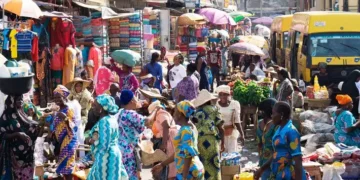How did you go into agricultural trading, as many businessmen will prefer the lucrative oil sector?
It is not an individual effort; it was a joint decision with my co-founder, Mr Oluwole Familola. We started organically as brokers over 7 years ago. We went into brokering deals for Nigerian traders because we had access to international traders. Such was our humble beginnings.
How did you get access to international brokers?
We were based in the United States of America (USA) then, specifically in Chicago. There happened to be a big trading convention which we gathered our savings to attend. We rented a car and drove 21 hours to Miami for the convention and shared a room. It happened to be one of the best decisions of our lives because we were able to network, make friends and build relationships which we have nurtured through the years. Thanks to all these, we now have relationships with some of the worlds largest commodity trading houses.
How has it changed your life?
The impact the whole thing is making on the generality of the society is the main thing for me. Our economy isn’t so mature where things are based on theory. Like in the U.S the commitment to society isn’t as real or tangible as it is here. Here we can see direct social impacts in the lives of our employees, teams, partners and local community in general. Making direct impact in peoples lives for the better is so fulfilling and can’t be quantified.
Why did your company choose to go into cashew processing instead of other areas of the agric value chains?
We actually started as brokers before going into trading and, today, we are now processors. So, our growth has been organic. We are well experienced in every part of the value chain. These experiences are what separates us from the rest.
What are the challenges in the market?
Just like every industry, there are challenges. Stealing has been endemic in the business, and it is from the warehouses to the ports. So devastating! This has forced us to put together a process to secure our goods from the warehouse to the port, but unfortunately it is increasing our operating expenses.
Are you seeking support from the government or any type of partnership?
We have been supported by government agencies due to the fact that they have woken up to the fact that the country needs to diversify from a strictly oil-based economy. The first wave of processors across the African continent crashed because there was no government support but, fortunately, they have now realised that it makes no sense not to add value to our commodities by doing some of the processing ourselves, instead of taking them to other third world countries like Vietnam or India. They are currently trying but they need to step up. Enough support is what some of the (big) players in the sector need. From our own end, we are armed with a state-of-the-art factory. We have all the equipment in place; all our oftaker agreement are in place. What now only need is capital for stock and working. I have faith in our government and all the agro-based support from the CBN to Nexim at our disposal we shall pull through.
What other ventures are you looking forward to next?
We want to be positioned in a way that we can always add values as far as processing is concerned. We are inspired and motivated by international Agro-processing power houses next we have a blueprint to be a well structured internationally respected Agro processing powerhouse. People and entities are always reaching out to us for businesses mostly through our website: https://agncommodities.com. We are focused on maintaining the tempo and opening new frontiers.




